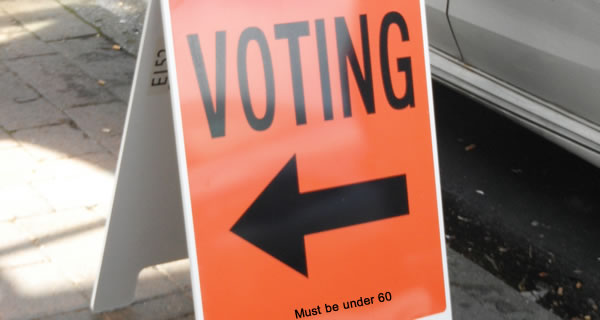The challenge facing our younger generations is how to stop my generation plundering the government accounts to an extent never seen before. We hold the votes – who ya gonna call?
One solution might be for a younger generation party to seize the balance of power and then introduce a maximum voting age.
It’s not as silly as you might think.
READ MORE:
• Gareth Morgan: No one deserves a fat state pension
We can all agree that age is a somewhat arbitrary delineator of a person’s ability to vote … intelligently anyway.
Is a youth of 17.5 years really that less mature than one of 18? Maybe sometimes, but mostly not. That makes the age of eligibility arbitrary, right?
When we vote we are influencing not just our present well-being, but our future well-being and that of our children and grandchildren. It’s self evident that young people have more of a future than old ones. Why does an older person then get to exercise more influence on a young person’s future well-being than a young person has to influence the (shorter) future of an old person? That seems the wrong way round.
The standard response would be that the older person is more experienced, more wise to the ways of the world and therefore more capable of exercising “responsibly” their undue influence.
This is a long bow – why should experience outweigh self-interest when it comes to voting? We know older people are more resistant to change, which in itself makes them a drag on the ability of a nation to adapt to changed circumstances and prioritise long-term issues over short-term convenience.
My generation has proved this. For years we’ve been using the government to feather our own nest. Just think NZ Super, the health system, and tax-free wealth creation via a property bubble.
Now back to a maximum voting age. Senility is decidedly less common among younger voters than among the baby boomers and it is only going to get worse.
When does an old person become unfit to vote? Age by itself is a crude and deficient delineator, but we use it to lock the young out of influencing their future. Why not look at it as a way to lock the elderly out? Just a thought.
What other criteria could we look at then in terms of getting a voting public that is actually fit-for-purpose? If age is deficient, are there better eligibility criteria? I would argue absolutely: intelligence, cognitive ability, and general knowledge. Without sufficient performance in all three of those I would suggest that some of so-called eligible age aren’t fit to vote anyway.
Everyone has a right to have their interests represented by government. But that is not the question I’m addressing.
The question is, are folk who score low on such criteria actually able to adequately express their own self-interest, let alone the interest of the population at large? The answer is not always, maybe never. Let’s not fool ourselves. We opt for age as the delineator because we don’t want to have to think about this.
Personally I prefer deciding eligibility on some proven minimal capability to be fit-for-purpose.
However, I’m not holding my breath, so the best bet for the younger generations is to form a voting bloc and grab the balance of political power.

